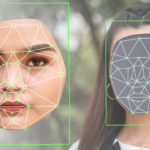Using traditional Māori knowledge, I discuss cultural appropriateness of deep fakes and face swapping filters. Some of this discussion is also applicable to Facial Recognition systems.
Apart form Māori, this article may be of interest to developers and organizations with Facial Recognition Systems.
It is against tikanga Māori (customary beliefs) to have your image on the Internet, but as our society is always online and share images of our faces, this article is a quick tikanga lesson about the Face Swapping filter often seen in social media and the tikanga with Deep Fakes.
Our traditional stories are the first warning of the dangers of face swapping. Rohe was a wife of Māui. Rohe was a very beautiful woman, while Māui was very ugly. Māui wanted to change faces with Rohe, but she refused his request. So Māui recited a karakia over Rohe while she was sleeping, that allowed their faces to be swapped. In the morning when Rohe awoke she was so distraught that she committed suicide.
If we analyze this story further. Rohe would have used a reflection of herself, likely in the water as there were no cameras to take photos or mirrors. In today’s society Rohe would likely have seen a photo of herself. The lesson is that you should not swap faces with anyone.
Many Māori know that blood transfusions and organ transplants are not right. It is easy for many in our modern day society to think of the physical aspect of this and feel uncomfortable. Pre colonisation, it was normal to consider both the physical, mental and spiritual consequences of actions. When we consider the tikanga that once you touch something or interact with someone, their mauri becomes a part of you and vice versa. By swapping faces of someone else, while not physical, your āhua (looks) will inherit a part of the other persons mauri.
Next consideration. Most Māori would never take a photo of their tipuna or a dead person and associate it or paste it onto another photo. The Instagram filter is no different.
Swapping a taonga species face with your own has other dangers. You should consider the whakapapa of the taonga species and what kaitiaki they are.
Removing a moko (traditional Māori tattoo) from an image of a person and putting it on your self, or other person/object is one of the most offensive actions that should never be considered.





Leave a Reply